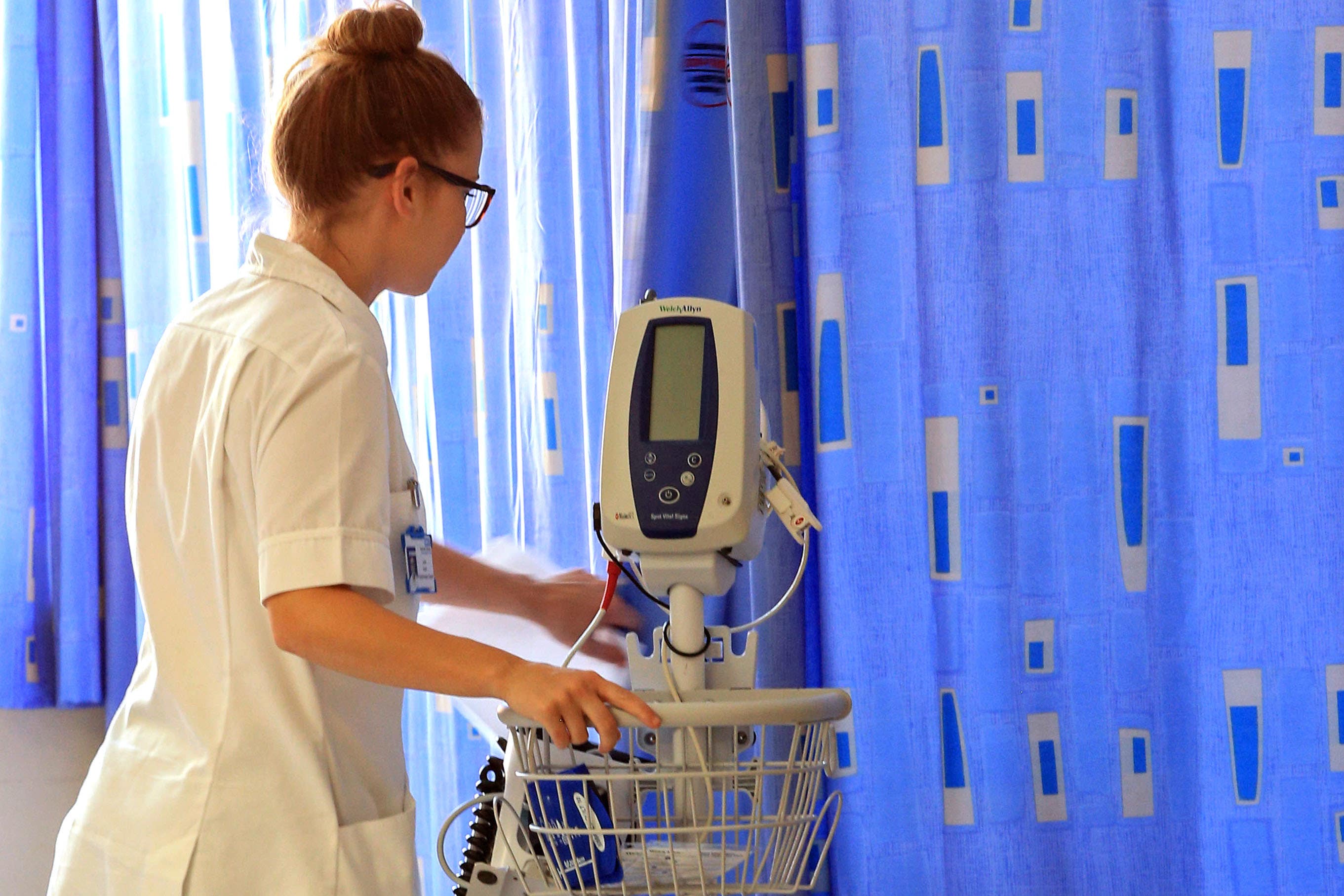Winter set to be worst ever for A&E waits as NHS ‘pressurised like never before’
A number of NHS trusts have declared ‘critical incidents’, meaning they cannot function as usual due to extraordinary pressure.

This winter is likely to be the worst on record for A&E waiting times as hospitals struggle to cope with rocketing demand driven by flu and Strep A, health leaders have warned.
The Royal College of Emergency Medicine (RCEM) believes this month will be the worst December for hospital bed occupancy and A&E waiting times while the Society for Acute Medicine has said services are being “pressurised like never before”.
Several NHS trusts have declared “critical incidents”, meaning they cannot function as usual due to extraordinary pressure.
Over 90% of clinical leads last week reported that they had people waiting in their emergency department for more than 24 hours
The president of the RCEM, Dr Adrian Boyle, said that Britain has among the lowest proportional hospital bed capacity in Europe and the NHS is facing a “staff retention crisis” after losing 40,000 nurses in 2022.
He added that services have been stretched more recently by nurse and ambulance worker strikes, and a “demand shock” caused by a flu season which “certainly hasn’t peaked” along with coronavirus and Strep A admissions.
Speaking to the PA news agency, Dr Boyle said: “In November, we recorded the highest ever hospital occupancy at 94.4%.
“I would be amazed if that has gone down over December. It almost certainly would have gone up.”
Dr Boyle added that he “would not be at all surprised” if this December was the worst on record for A&E waiting times and hospital bed occupancy.
“Over 90% of clinical leads last week reported that they had people waiting in their emergency department for more than 24 hours,” he said.
“The gallows joke about this is now that 24 hours in A&E is not a documentary, it’s a way of life.
“These long delays are harmful for people – they are sick and need hospital but are waiting in the corridor of an emergency department.
“It’s undignified and it’s dangerous.”
In November, around 37,837 patients waited more than 12 hours in A&E for a decision to be admitted to a hospital department, according to figures from NHS England.
This is an increase of almost 355% compared with the previous November, when an estimated 10,646 patients waited longer than 12 hours.
Dr Nick Scriven, former president of the Society for Acute Medicine, said the NHS urgent care system is “pressurised like never before”.
He called for action from the Government and NHS leaders, and for the general public to play their part to ease pressure on struggling services.
Dr Scriven said: “I would ask people to consider carefully if their problem requires emergency care and if they do present to hospital, to realise that people will be seen in order of clinical priority.
“Personally, I feel now is the time for the NHS to consider a short-term moratorium on the pressure to recover elective work, and all branches of medicine to recognise the state of the system and work together for the common good.
“I would also be inclined to advise that people with symptoms that could be flu or Covid should be cognisant of the possible risks and to consider forgoing social gatherings to minimise the spread of viruses.”
NHS trusts which have declared “critical incidents” include South Western Ambulance Service, University Hospitals Trust Leicester, Hampshire and Isle of Wight, Buckinghamshire Healthcare, and University Hospitals of North Midlands.
Some trusts declared critical incidents several days ago but have since removed the status as conditions improved – including Surrey and Sussex Healthcare, Sandwell and West Birmingham Hospitals, East of England Ambulance, and University Hospitals of Derby and Burton.
Bookmark popover
Removed from bookmarks